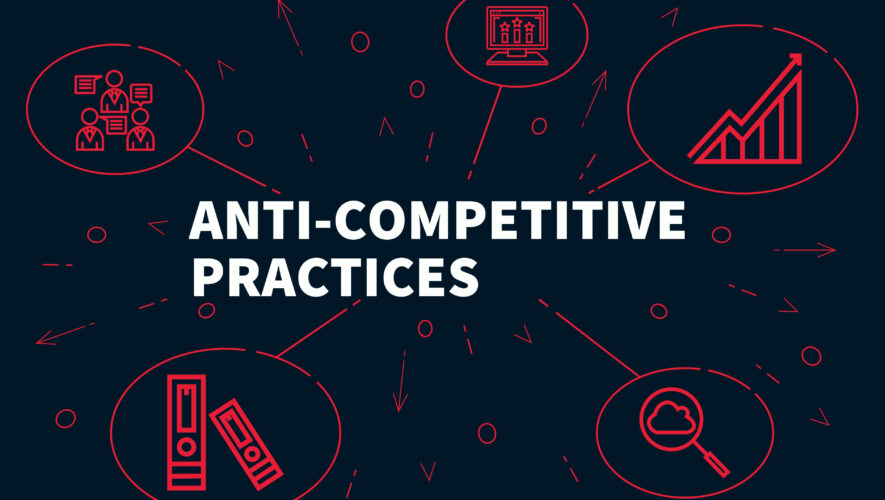By Julius Melnitzer | March 2, 2021
COVID-19 and its economic aftermath have cast a dark shadow of regulatory risk on businesses coping with Canada’s competition laws.
There are two reasons: the first is that regulatory enforcement of corporate laws tends to be at its highest in bad times; the second is that that our speed-of-light transformation to a digital economy has left many corporate compliance systems in the dust.
Part I of this series will examine the impact of crisis on regulatory enforcement; Part II will deal with the digital transformation.
That enforcement would ramp up during an economic downturn, however caused, makes sense.

“Temptations increase when margins get slimmer, people who are making money don’t complain as much to regulators, and in bad times companies fire people, who then become whistleblowers,” says Kenneth Jull, counsel at Toronto’s Gardiner Roberts LLP.
Some observers expected a COVID-related dip in the Competition Bureau’s enforcement initiatives.
“But the Bureau learned to cope with the technological gap,” says Huy Do in Fasken Martineau Dumoulin LLP’s Toronto office, “Criminal prosecutions may be a bit tougher because COVID put limitations on search and seizure, but merger review is proceeding at a regular pace, and misleading advertising investigations have increased.”
Just ask Facebook: during COVID’s first wave in May 2020, the company paid a $9 million penalty for making misleading claims about data privacy on its platforms.
Amazon is also facing an ongoing restrictive trade practices investigation into its treatment of independent sellers.
And in February, Alberta-based Revive You Media incurred a $15 million fine for operating a “subscription trap”.
It’s notable that, at the pandemic’s outset, the Bureau proactively established a dedicated team to monitor the marketplace for deceptive COVID-19 claims. That team is strengthening ties with international and domestic partners, like Health Canada, to protect citizens on a global scale.
Matthew Boswell, Canada’s Commissioner of Competition, agrees that anticompetitive conduct increases during economic downturns.
“Competitive markets are vital to our economic recovery and strong, and steady enforcement of competition law is essential to prevent anticompetitive conduct during a crisis,” he said in an email responding to questions from LegalWriter.net.

The upshot is that the Bureau is scrutinizing many things, including procurement actions, more closely.
“We also expect an increase in deceptive marketing activity and market consolidation,” Boswell said.
The pandemic, then, has brought a renewed focus on proactive enforcement.
“We are expanding our enforcement and intelligence-gathering efforts, and making investments in technology to generate leads and to monitor merger activity that may not meet the thresholds for notification but may have impact nonetheless,” Boswell said. “This work has already led to a number of investigations.”
Additionally, the Bureau is planning a Monopolistic Practices Intelligence Unit, aimed at proactive identification of targets that warrant investigation.
There’s no question that enforcement administration becomes more complex in a crisis.
In some cases, COVID has forced the Bureau to change its enforcement parameters to allow conduct that would usually be prohibited. By way of example, competitor collaboration issues reared their heads early on in the pandemic.
“Supply-chain disruptions at the outset of the pandemic created the risk that critical goods would not be delivered to Canadians without collaboration on the part of competitors,” Boswell explained.
The Bureau responded with guidance signalling that companies who collaborated in good faith to deal with critical supply issues, and went only as far as required by the crisis, would not attract scrutiny.
In other cases, like the expected uptick in “failing firm arguments”, the Bureau is holding firm to its mandate.
“It is our strong belief that the best way for the Bureau to support both short- and long-term economic recovery is not to relax the standards for establishing a failing firm,” Boswell said. “Relaxing those standards would make it easier for otherwise anti-competitive transactions — which could have lasting impacts on the economy — to proceed.”
Fair enough. But if enforcement ramps up, is Canadian business ready to confront how the foundational changes to the way we do business will impact competition law and compliance?
Part II of this series will answer that question. Stay tuned.
Julius Melnitzer is a Toronto-based legal affairs writer, ghostwriter, writing coach and media trainer. Readers can reach him at julius@legalwriter.net or https://legalwriter.net/contact.
RELATED ARTICLES
Does the Competition Bureau have Canada’s grocers in its sights?
Are big fund managers’ sizeable holdings in companies hurting competition?
“Vestige of the past”: Competition Bureau mulls scrapping “efficiencies” defence in merger laws
New Competition Bureau Commissioner targets telecom, pharma and infrastructure industry
Competition Bureau’s call for intel on anticompetitive conduct in digital economy raises eyebrows
